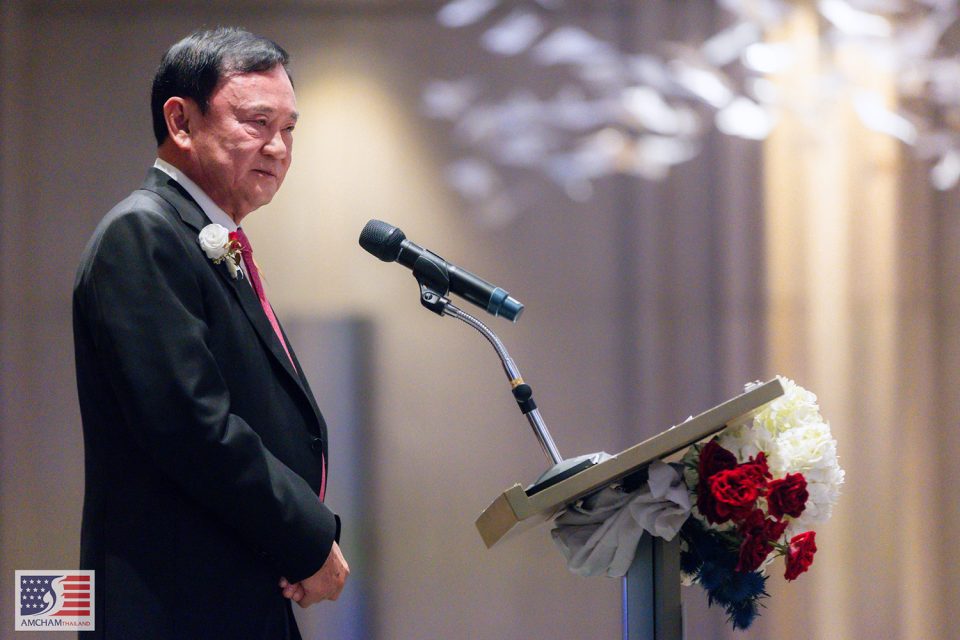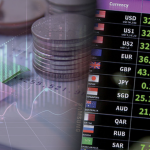Photo credit: Amcham Facebook account
Thailand must overhaul its import regulations and investment promotion policies, which have been critical in attracting Chinese capital, as a significant US tariff poses a threat to the country’s export-driven growth, according to former Prime Minister Thaksin Shinawatra.
He emphasized that the impending 36% tariff on shipments to the US should act as a “wake-up call” for the government led by his daughter, Paetongtarn Shinawatra, to address the issue of foreign manufacturers bypassing local content requirements. Thaksin made these remarks during a seminar hosted by the American Chamber of Commerce in Thailand on Thursday.
Highlighting the success of Thailand’s electric vehicle sector, which has attracted billions in investments from various Chinese automakers due to government incentives, he observed, “We have a significant deficit with China, coupled with a moderate surplus with the US. There’s possibly an issue that needs to be addressed here. We will therefore revise our policies in response to the tariffs.”
Thaksin’s comments come as Thai officials gear up to negotiate with the US to reduce the reciprocal tariffs, which are among the highest imposed during the Trump administration. Last year, Thailand recorded a $46 billion trade surplus with the US, its most significant export market.
His statements also hint at a possible shift in Thailand’s stance, a country that has benefited greatly from Chinese investment amid global supply chain shifts. From 2022 to 2024, Chinese companies, including ByteDance’s Singaporean branch, were the top source of foreign direct investment in Thailand, making up nearly 28% of total foreign investment while US firms represented about 8%.
The trade war underscores the challenges faced by nations like Thailand, which have tried to maintain neutrality. While the US encourages countries to reduce trade with China and limit its manufacturing dominance, Chinese officials have cautioned against agreements with the US that could damage their interests.
Thailand is also prepared to revise its import tax policies to favor US products, moving away from World Trade Organization regulations in favor of bilateral agreements, as exemplified by US corn, Thaksin noted. Additionally, Thailand plans to increase its imports of liquefied natural gas from the US to help reduce the trade deficit.
Despite not holding an official role in the current government, Thaksin is regarded as a significant influencer on its policies and initiatives.
Negotiations between Thai and US officials regarding tariffs, initially scheduled for this week, have been postponed, with Ms. Paetongtarn indicating that Washington wanted her administration to address certain issues first. She has directed officials to take action against the misuse of certificates of origin by foreign companies attempting to evade higher US import tariffs. Finance Minister Pichai Chunhavajira also mentioned that Thailand would investigate US concerns related to currency manipulation.
The Thai government’s cautious approach to the tariff discussions has sparked questions about its strategy, especially as neighboring Southeast Asian countries, including Indonesia and Vietnam, have made strides in their own US negotiations.
Thaksin, a former business tycoon, acknowledged that negotiating with the US can be challenging but reassured American business leaders that Thailand is well-prepared for discussions. He stated, “The negotiations are not straightforward; it’s more than just discussing percentages. The government is ready and prepared to engage whenever they are ready.”





